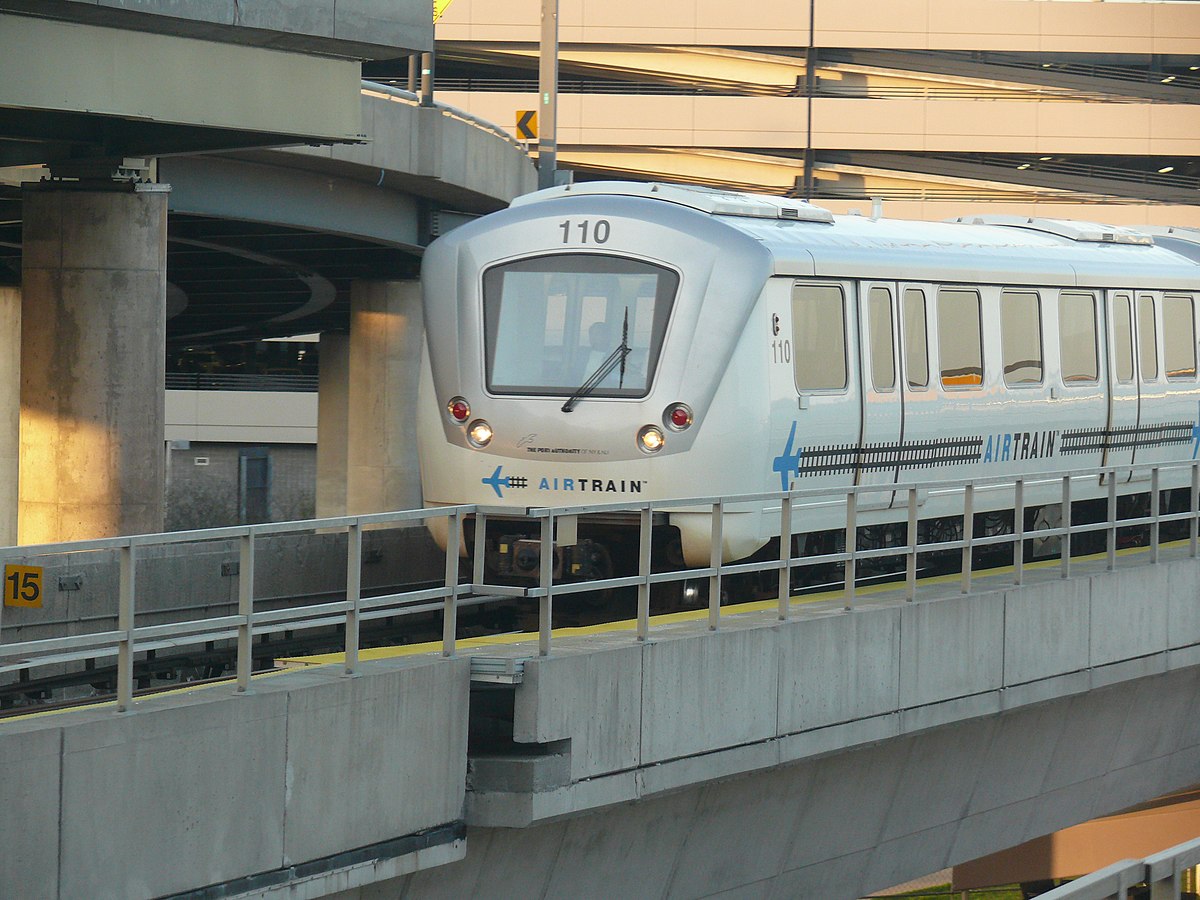The Port Authority's decision to raise fares on the AirTrain to JFK by 55 percent could cut ridership by one-quarter, increase regional congestion, worsen the air, and put an undue burden on other public transit to the airport — but transportation officials said they didn't even study the ramifications of the move.
The JFK AirTrain fare will rise from $5 to $7.75, and the fare hike on the Newark version of the rail-to-runway express will rise from $5.50 to $7.75, a 41-percent hike.
The Port Authority declined to say how many riders would flee the services because of the price shock, nor would the agency enumerate how much revenue it expects to lose or gain from the increase — the first price hike for the JFK service since it debuted in 2003 (the 19-year-old Newark version had a small fare hike in 2005).
But non-government transit planners have long studied how price affects demand for services.
The 55-percent hike “would typically reduce ridership from roughly 7 percent to 25 percent in the short run and more in the long run as travelers take the higher prices into account when making long-term decisions such as whether or not to purchase a vehicle or where to live,” said transit analyst Todd Littman of the Victoria Transport Policy Institute, an independent research organization.
Hiking the fare could have other deleterious economic consequences, including putting more transit users on the roads, Littman said. If the Port Authority was seeking “to achieve strategic objectives such as congestion reduction, emissions reduction, affordability, and job opportunities for disadvantaged populations” — goals it has enunciated at times — it might “find some other revenue source,” he said.
The price hike starts Nov. 1 and is meant to raise revenue for the Port Authority's ongoing 10-year, $37 billion capital plan. It will affect tens of thousands of people: The JFK AirTrain had 8,221,145 passengers last year, while the NJ Transit/AirTrain combo had 12,378,796 passengers, according to Port Authority data.
The AirTrain is vital not only to tourists and regular flyers, but also to airport workers, who pick up the JFK AirTrain at either the Howard Beach or Jamaica subway stations. New Jersey Transit and Amtrak riders pick up the Newark AirTrain at Newark Liberty Station.
If riders abandon the services for local bus routes, those routes could feel strains on their capacity. If riders decide to take taxis or for-hire vehicles to the airport instead — calculating that the greater convenience is worth a fare of $50 or more — it would clog roads and create more greenhouse-gas emissions.
"For someone connecting to the AirTrain via the subway, the ride will cost over $10, and any lower-cost benefits of the AirTrain are going to start to dissipate," transit maven Ben Kabak wrote on his blog, Second Avenue Sagas. "A group of travelers or a family of four eying a transit trip to the airport but facing a price tag of $42 for the trip may just spring for a cab instead."
Another expert, Ben Fried of TransitCenter, pointed out that tourists are not the only users of the AirTrain.
"A lot of airport workers commute by bus,” he said. “Even without an AirTrain fare hike, those routes should get better priority on congested airport approaches. This could add more strain to airport bus service and makes it more urgent to carve out street space for transit."
The Port Authority is confident will not affect ridership, in part because many airport staffers will still use the trains and still pay only $2.50 per ride because they are able to purchase bulk tickets.
“We believe the demand for AirTrain will continue to be strong as it remains a significant value over other means of transportation, both in terms of price and predictability of travel time,” Port Authority spokesman Steve Coleman said.
The Metropolitan Transportation Authority, which runs buses to JFK, "does not anticipate a significant change to bus ridership in relation to the AirTrain fare increase,” said spokesman Aaron Donovan. “However we will monitor and make adjustments as needed, as we do continuously for all bus routes.”
Adjustments might be needed. After all, many bus options exist for those who want to avoid the AirTrain. Subway riders can transfer from the F trains to the Q3 at Jamaica. One also can access the Q3 at the LIRR Hollis station. The Q10 serves Kew Gardens, Richmond Hill, and Ozone Park; it goes to Terminal 5. In Brooklyn, subway riders can take the 3 or the L train to New Lots Avenue and hop on the B15. From any terminal at JFK, one can hop on the AirTrain to another terminal for free.
As for revenue, the Port Authority estimates that it will reap $235 million annually from new tolls, fares and fees it has put in place recently, including the AirTrain fare hike — a small part of the agency's $3.3-billion budget (the agency declined to break out the portion it expects from the AirTrain fare hike).
Lest the AirTrain become too unattractive to airport-bound passengers, the Port Authority will begin assessing $2.50 for Uber and Lyft pick-ups and drop-offs at the airports starting next year. Taxis will pay $1.25, rising to $1.75 in 2022.






